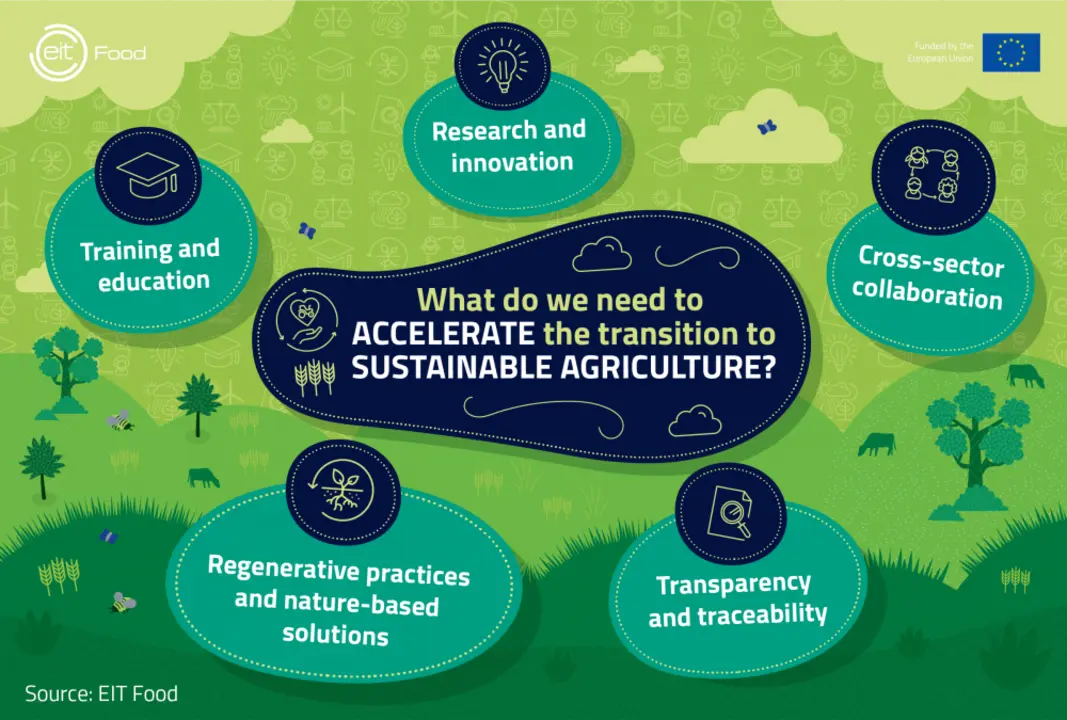Exploring the Benefits of Sustainable Agriculture Practices
Sustainable agriculture practices are essential for creating a healthy and sustainable food system. There are many benefits that come with implementing sustainable agriculture practices, ranging from environmental protection to economic growth. In this article, we will explore the various benefits of sustainable agriculture practices and how they can help to create a healthier, more sustainable food system.
Environmental Protection
One of the main benefits of sustainable agriculture practices is the protection of the environment. Sustainable agriculture practices can help reduce soil erosion, conserve water, and reduce the amount of chemicals and pollutants used in the production of food. In addition, sustainable agriculture practices can help to reduce the amount of greenhouse gas emissions released into the atmosphere. This can help to reduce the impacts of climate change and make the food system more sustainable.
Economic Growth
Another benefit of sustainable agriculture practices is the potential for economic growth. Sustainable agriculture practices can help to increase farm productivity and improve market access for farmers. This can provide a boost to the local economy and help to create jobs and increase income for farmers. In addition, sustainable agriculture practices can help to reduce the cost of producing food, which can lead to lower food prices and increased affordability for consumers.
Social Benefits
Sustainable agriculture practices can also bring about social benefits. These practices can help to improve access to food for people in developing countries, reduce poverty, and improve the health and nutrition of local populations. In addition, sustainable agriculture practices can help to create healthier and safer working conditions for farm workers, as well as helping to preserve traditional farming methods and cultural practices.
Conclusion
Sustainable agriculture practices can have a positive impact on the environment, economy, and society. By implementing sustainable agriculture practices, we can create a healthier, more sustainable food system that benefits people and the planet. Sustainable agriculture practices are essential for creating a food system that is both healthy and sustainable for the future.
The Impact of Sustainable Food Systems on Global Health
Sustainable food systems can have a major impact on global health. With the global population increasing and climate change causing droughts and other extreme weather conditions, it is more important than ever that we create sustainable food systems that can provide enough food to feed the world’s population while also preserving the environment.
Reduced Environmental Impacts
Food systems that are sustainable work to reduce the environmental impacts of food production, such as resource depletion, water pollution, and energy use. Sustainable food systems strive to use natural resources responsibly and minimize human-caused pollution. They also strive to reduce the amount of energy used in food production, which can help to mitigate the effects of climate change.
Improved Nutrition and Health Outcomes
Sustainable food systems can also improve nutrition and health outcomes for people around the world. Sustainable food production can help to ensure that people have access to healthy and nutritious foods, which can help to improve the overall health of populations. Sustainable food systems can also reduce food waste, which can help to reduce hunger and malnutrition.
Economic Benefits
Finally, sustainable food systems can also provide economic benefits. Sustainable food production can help to reduce costs and increase efficiency, which can help to make food production more affordable. Sustainable food systems can also create jobs and economic opportunities, which can help to improve living standards in communities around the world.
Conclusion
In conclusion, sustainable food systems can have a major impact on global health, the environment, and the economy. By reducing environmental impacts, improving nutrition and health outcomes, and providing economic benefits, sustainable food systems can help to create a healthier, more equitable world.
Examining the Role of Technology in Creating a More Sustainable Food System
The food system is an integral part of society and it is essential to ensure that it is as sustainable as possible. Technology plays an increasingly important role in creating a more sustainable food system, and it is important to examine how it can be used to achieve this.
Reducing Food Waste
One of the main ways in which technology can be used to create a more sustainable food system is by reducing food waste. With the help of data-driven technologies and predictive analytics, food waste can be reduced significantly. For example, technology can be used to monitor food production and distribution, as well as to predict demand for certain products. This can help to reduce waste by ensuring that the right amount of food is being produced and distributed to meet demand.
Improving Food Safety & Quality
Technology can also be used to improve food safety and quality by providing better oversight and monitoring of the food production process. For example, remote sensors can be used to monitor the temperature of food during storage and transport, ensuring that it is kept at the right temperature and is not spoiled. Technology can also be used to detect contaminants in food, ensuring that any potentially dangerous food is identified and removed before it reaches consumers.
Increasing Access To Healthy Foods
Finally, technology can be used to increase access to healthy foods. For example, technologies such as mobile apps and delivery services can make it easier for people to access healthy and affordable foods. These technologies can also make it easier for people to find information about foods, allowing them to make more informed decisions about what to buy and eat.
Overall, technology can play an important role in creating a more sustainable food system. By reducing food waste, improving food safety and quality, and increasing access to healthy foods, technology can help to ensure that the food system is as sustainable as possible.
